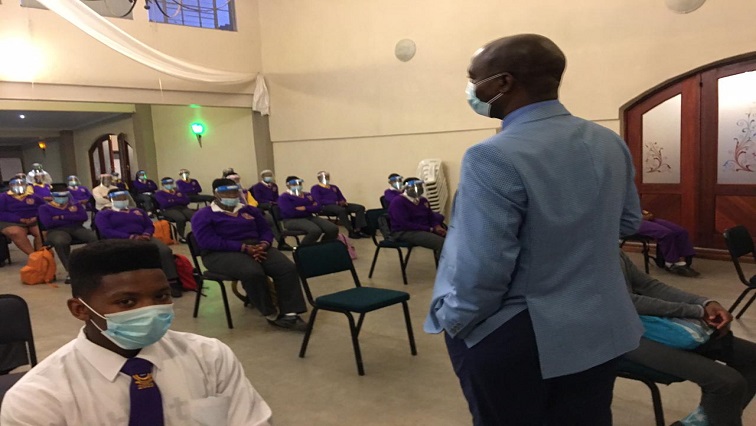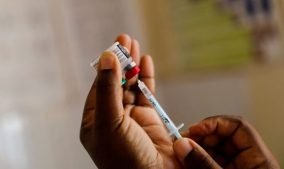The resurgence of coronavirus infections in the Nelson Mandela Bay Metro, over the past two weeks, has reignited concern among schools as children returned from holiday this week.
The Metro currently has more than 3 500 active cases – up from 400 two weeks ago. It is also the start of the matric exams, but protocols are in place allowing matrics who contract the virus to complete their exams.
The eight coronavirus hotspots in the metro are Motherwell, Uitenhage, KwaZakhele, KwaNobuhle, Walmer, Bethelsdorp, Zwide and Despatch.
Disaster Management Chairperson, Shane Brown, says the main reason for the rise is non-compliance which includes people not wearing masks.
“And even more frightening, we have noted over this past weekend a huge number of night clubs that are now operating, whereas this is expressly forbidden in terms of the regulations in terms of Disaster Management Act. We have also ensured that there is increased vigilance from our law enforcement agencies to try and bring compliance back. People need to know that from midnight to 4 am there is a curfew in place.”
Matric exams
Meanwhile, more than 79 000 learners in the Eastern Cape are registered to write their matric exams. As the final exams started, matrics from schools in New Brighton and KwaZakhele are experiencing mixed feelings.
Learners had to adjust fast, adapting to online and remote learning. Many learners never thought this day would come, after the challenges they faced this year.
“The English paper today went really well. It was actually amazing. It has been a tough couple of months and I was not hopeful that we will be able to even write these exams, but now I have so much hope that we will do well,” says one student.
“I am very positive that we are going to do very well as the class of 2020. Our teachers have been so amazing in helping me catch up on work and make sure we complete the syllabus, which we did. So, as much as I was nervous at first that this year wouldn’t end well, I am now very encouraged that I will do well,” says another hopeful student.
Since last year, learners have the option to write their examinations in isiXhosa or Sesotho. It is hoped that writing in indigenous languages might improve the results to 80%.
This year has not only been tough on matrics leaners. Grade 11 learners Mahluko Mbenga and Sithenkosi Mnyameni from Kwazakhele High School say they made the best of the circumstances.
“I am very confident that we are going to do well this year, despite all that we have faced. I am aware that the numbers in the metro are rising, but I’m not scared because at school we are still adhering to regulations and the teachers always make sure that we sanitize and keep social distancing,” says Mbenga.
“I’m very scared about the numbers that are going up because we may get infected here at school and then take it to our grandparents at home, and that scares me. But I am confident that we are going to do well this year and pass,” says Mnyameni.
A spokesperson for the Department of Education in the Eastern Cape, Malibongwe Mtima, says learners who do test positive for COVID-19 will still be allowed to write their exams in isolation, under strict health protocols.
“We have a joint task team, consisting of Department of Health officials, Department of Health and Social Development, that is troubleshooting where there are problems. We urge people not to expose themselves and to continue to adhere to regulations so that we stop the rise in numbers of infections. Learners and educators must wear the masks at all times,” says Mtima.
In the video below, E Cape learners say the first exam went well:






